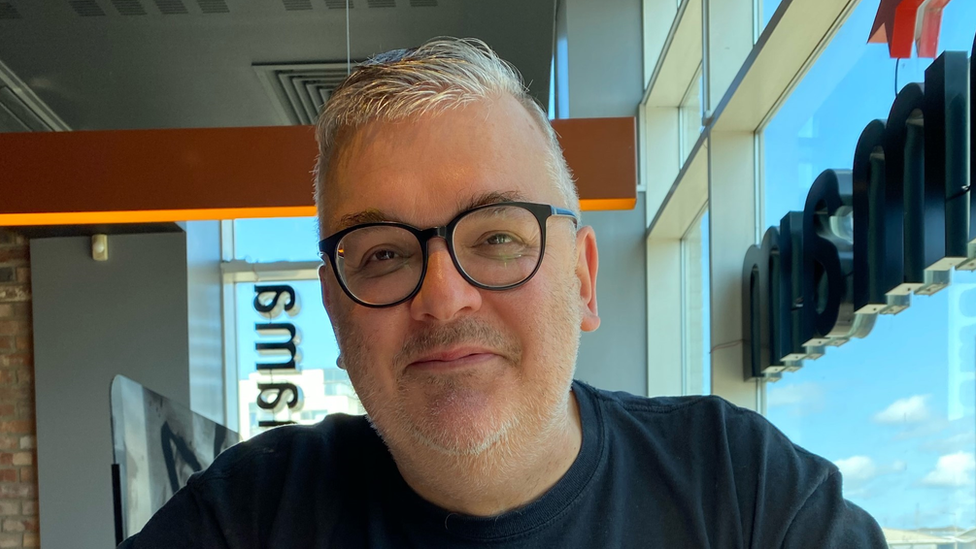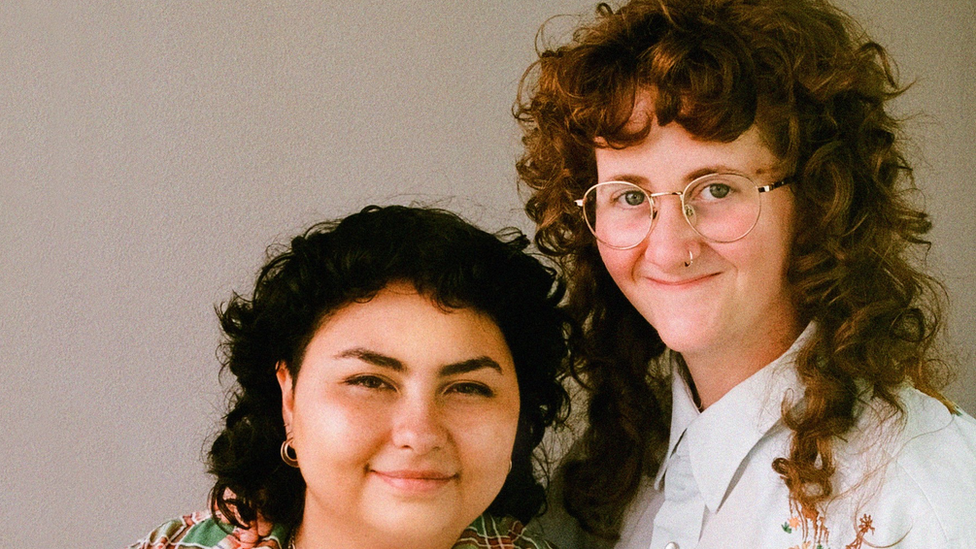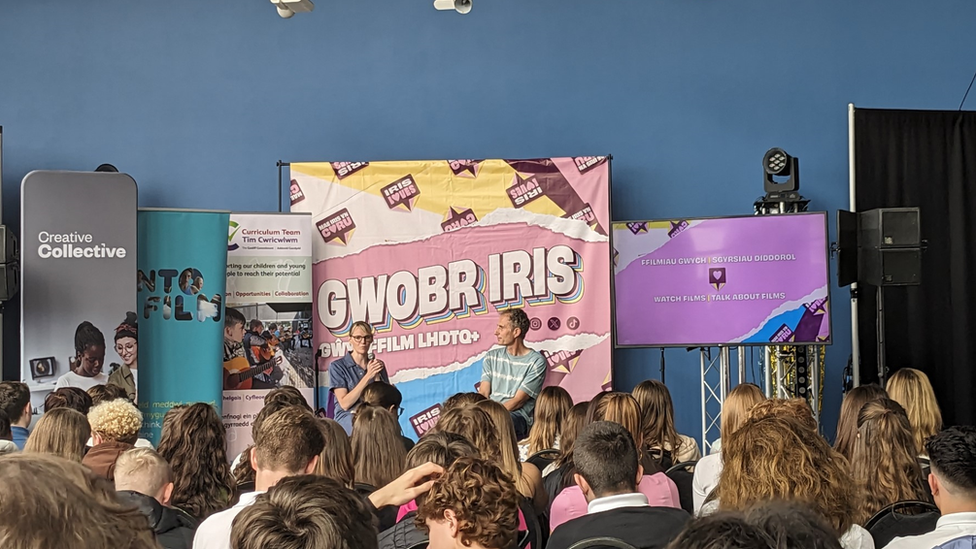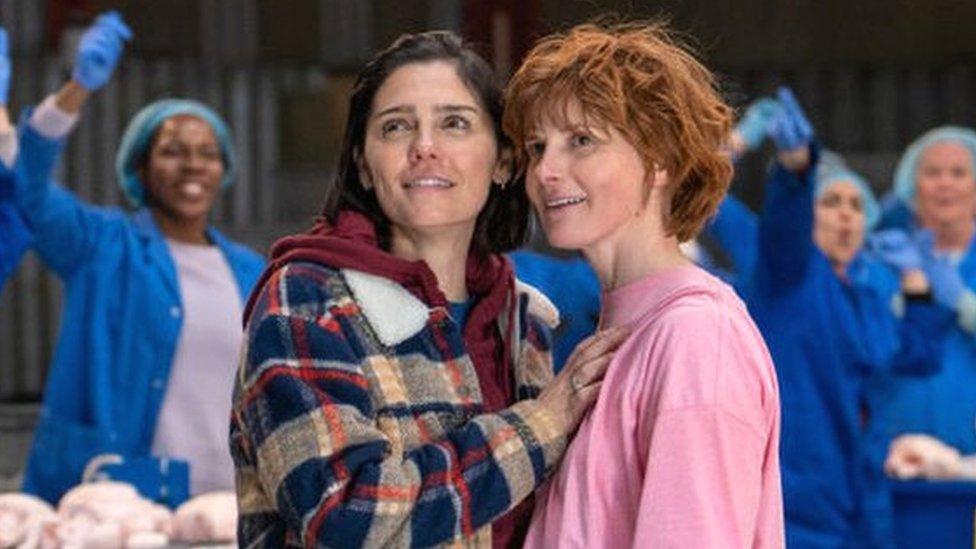Iris Prize: 'Queer joy' hard to find this year - director
- Published

Berwyn Rowland says It's a Sin is a good example of "queer joy"
Films offering light relief have been hard to come by at this year's Iris Prize, its director has said.
The Iris Prize is the largest LGBTQ+ short film prize in the world, showcasing a range of short and feature films every year.
But its director, Berwyn Rowland, said finding films for this year's light relief category had been hard.
The winner of the Iris Prize was announced on Saturday night as Scaring Women at Night by Karimah Zakia Issa.
It is the first winner from Canada and was described by the awards jury as "a well-crafted short film with a unique perspective that is seldom explored in LGBTQ+ storytelling".
It was congratulated by Mr Rowland, who said: "At Iris, we have always appreciated good storytelling, and I am delighted that we can celebrate just this".
Earlier, before the announcement, Mr Rowland said: "There are groups within the LGBTQ+ family where life is not as good as it should be.
"I was talking to Seth, who was responsible for programming, putting all the shorts into different programmes. And I said: 'Oh, where's the light relief?' And there was silence."
Mr Rowland said the festival was an "opportunity to gauge what film makers want to talk about" and that right now things were "a bit serious".
But he said the themes of joy and tragedy could be combined.
"An example of that is Russell T Davies's It's a Sin, which was the story of Aids from the point of view of the boys and the men who were impacted by that horrendous period. But there was something queer, and there was something joyous about it as well."

Tilly and Steph had their short film Single: Meat Cutes shortlisted in the light relief category
Tilly Robba and Steph Jowett, the directors of Single: Meat Cutes, had their animated short film showcased in the light relief category.
Their film tells the story of three roommates going on three different dates.
"We always talked about how when we were teenagers, there was just a lot of films and TV shows out there where they would kill the lesbian or the bi character," they said.
"I think that it's definitely important to acknowledge the history of queerness and tragedy within the queer community and sadness. But I think you need the light in there too in terms of representation, because we're human, multifaceted things."
Heartstopper
Euros Lyn, who directed the hit Netflix series Heartstopper, said during a talk at the Iris Prize Festival that there was space for such stories to be both tragic and happy.
"There have been lots of stories with queer people suffering, going to hell and back," he said.
"Heartstopper shows falling in love with another boy or another girl is the most natural thing in the world.
"You can express something a bit more optimistic and fun which in its own way does express the truth."

Euros Lyn says such stories can be optimistic without losing anything
Steve Anthopoulos, director of My Summer in the Human Resistance, a sci-fi short film, said his first draft was a lot darker.
"Where there was tragedy at one point at the end of a much, much earlier and different version, a friend of mine gave me some great advice to just be kind to your gays," he said.
He said "queer joy" to him meant that things "don't have to be too serious or traumatic or important".

Lorena Russi said she wanted to make a romantic short film where the characters never kiss
Lorena Russi, director of a History of Sitting in Waiting Rooms, said "queer stories" were often darker in theme.
"All these queer films are like hyper-sexualised, hyper painful... lot of drugs, very dark," she said.
Her short film shows the story of an immigrant growing up with the help of her best friend, a ghost.
"I just really wanted to make a film where the characters are never going to kiss."
- Published13 October 2023
